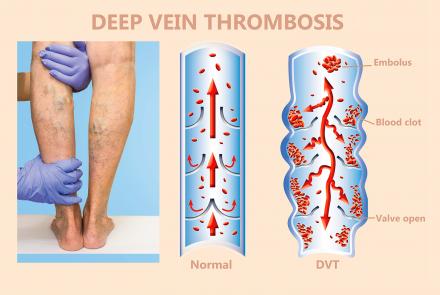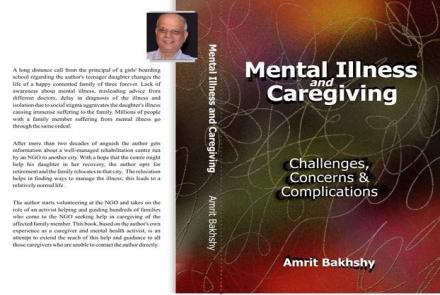This World Thrombosis Day, Dr Manohar B Kalbande, Cardio vascular & thoracic surgeon warns that diabetes, high cholesterol, obesity and sedentary lifestyle increase risk of Deep Vein Thrombosis (DVT) and recommends early diagnosis, complete treatment and regular follow up to get give good relief from this disease.
What is Thrombosis?
Blood returning to the heart i.e. venous blood is drained by two sets of veins in our body- superficial and deep. The deep veins are located deep in the…
Latest Stories
- ‘Mental Illness and Caregiving: Challenges, Concerns and Complications’ – authored by Schizophrenia Awareness Association’s president Mr Amrit Bakhshy, was launched to coincide with World Mental Health Day. This comprehensive book, the first of its kind in India, is written mainly for caregivers of persons with mental illness and provides valuable information. Here is an interview with the author and an extract from the book. What was the inspiration for your book? How was the idea born? I…
- On World Cerebral Palsy Day, we speak to Joyeeta Sen, a senior special educator and Priti Salunkhe, a senior neurodevelopment therapist with Ummeed Child Development Center regarding child development and learning for children with the condition. What is the average age of a child with CP when first brought in? At Ummeed children with Cerebral Palsy varies anywhere from 3 years to 10 years but the average age would be between 3-4years. However, as part of early detection and early intervention…
- Heart diseases are the leading cause of death globally. Of these, about half the patients will undergo coronary angioplasty procedure at some time. Patients are then often faced with the choice of having a stent put in via angioplasty or going through a bypass surgery. So how do you make an informed decision with your doctor? Here are a few pertinent questions and answers by Dr. Shital Raval regarding the Stent vs Bypass dilemma. These options should also be discussed with your doctor or…
- Dr S.P. Goswami, Professor of Speech Pathology at Mysore counsels that with the right kind of support, the load of the communication disorder can be shared equally by the aged individual as well as the family, the key to it being to meet them halfway. Aging is a phenomenon which starts from birth and brings about changes in the individual across the life span. However, beyond the yardstick of 60 years, anatomical and physiological changes become highly evident in the human body, thereby leading…
- Dementia care is difficult. Caregivers have to be persistent and creative to make the ongoing adjustments required. Swapna Kishore discusses some important aspects that caregivers must understand and accept, and offers some tips to cope better. It is often assumed that family caregivers will be able to support their loved ones after dementia care is explained to them. But hearing about dementia symptoms or communication methods in a classroom is not enough to make family caregivers give better…
- Amrita Patil Pimpale, a qualified Dementia Care Trainer and Founder of Echoing Healthy Ageing, a social enterprise working in Dementia care sector, provides consultation and training for families and healthcare professionals in order to sensitize them to care for elderly with dementia. Here she advocates methods on how to improve quality of life for dementia patients and their caregivers. As a dementia caregiver consultant, what are the tips and advice that you give caregivers to facilitate…
- Dental needs become increasingly specialized with age, making regular visits to the dentist even more important. Dr Shail Jaggi highlights some common gum and teeth problems that could become burdensome, if ignored. When we think of an elderly patient the first vision that generally tends to flash by is someone with greying hair, stooping and bent over with age, thick glasses and a denture to eat! But let’s take a quick look at my office! I am dentist and deal with geriatric patients all the…
- On World Suicide Prevention Day, Paras Sharma, Programme Coordinator, iCALL Psychosocial Helpline, Tata Institute of Social Sciences (TISS) dispels some common misconceptions about suicide. 1. People who talk about suicide don’t usually do it, they just want attention. Suicide is a call for help that went unanswered. It's a myth that those who wish to end their lives don't explicitly say so, and those who don't are the ones who talk. There is ample research to show that suicidal…















